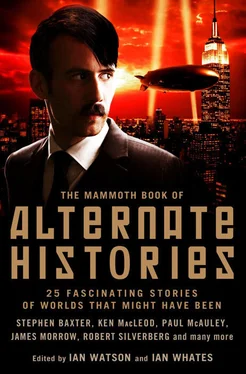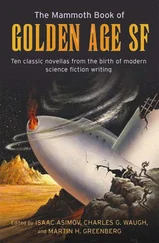22 April 1912
Lat. 33°42’ N, Long. 53° 11’ W
We’ve been at sea a full week now. No Carpathia on the horizon yet, no Californian, no Olympia, no Baltic. Our communal mood is grim but not despondent. Mr Hartley’s little band helps. I’ve forbidden them to play hymns, airs, ballads or any other wistful tunes. “It’s waltzes and rags or nothing,” I tell him. Thanks to Wallace Hartley’s strings and Scott Joplin’s syncopations, we may survive this ordeal.
Although no one is hungry at the moment, I worry about our eventual nutritional needs. The supplies of beef, poultry and cheese hurled overboard by the stewards will soon be exhausted, and thus far our efforts to harvest the sea have come to nothing. The spectre of thirst likewise looms. True, we still have six wine-casks in the first-cabin section, plus four amidships and three in steerage, and we’ve also deployed scores of pots, pans, pails, kettles, washtubs and tierces all over the platform. But what if the rains come too late?
Our sail is unwieldy, the wind contrary, the current fickle, and yet we’re managing, slowly, ever so slowly, to beat our way towards the thirtieth parallel. The climate has grown bearable — perhaps forty-five degrees by day, forty by night — but it’s still too cold, especially for the children and the elderly. Mr Lightoller’s Franklin stove has proven a boon for those of us in the bow, and our second-cabin passengers have managed to build and sustain a small fire amidships, but our emigrants enjoy no such comforts. They huddle miserably aft, warming each other as best they can. We must get farther south. My kingdom for a horse latitude.
The meat in steerage has thawed, though it evidently remains fresh, an effect of the cold air and the omnipresent brine. I shall soon be obligated to issue a difficult order. “Our choices are clear,” I’ll tell the Ada’s company, “fortitude or refinement, nourishment or nicety, survival or finesse — and in each instance I’ve opted for the former.” Messrs Lightoller, Pitman, Boxhall, Lowe and Moody share my sentiments. The only dissenter is Murdoch. My chief officer is useless to me. I would rather be sharing the bridge with our Bolshevik, Plotcharsky, than that fusty Scotsman.
In my opinion an intraspecies diet need not automatically entail depravity. Ethical difficulties arise only when such cuisine is practiced in bad faith. During my one and only visit to the Louvre, I became transfixed by Theodore Gericault’s Scene de naufrage “Scene of a Shipwreck”, that gruesome panorama of life aboard the notorious raft by which the refugees from the stranded freighter Medusa sought to save themselves. As Monsieur Gericault so vividly reveals, the players in that disaster were, almost to a man, paragons of bad faith. They ignored their leaders with insouciance, betrayed their fellows with relish and ate one another with alacrity. I am resolved that no such chaos will descend upon the Ada. We are not orgiasts. We are not beasts. We are not French.
4 May 1912
Lat. 29°55’ N, Long. 54° 12’ W
At last, after nineteen days afloat, the Ada has crossed the thirtieth parallel. We are underfed and dehydrated but in generally good spirits. Most of the raft’s company has settled into a routine, passing their hours fishing, stargazing, card-playing, cataloguing provisions, bartering for beer and cigars, playing with the dogs, minding the children, teaching each other their native languages, repairing the hastily assembled platform and siphoning seawater from the pontoons (to stabilize the raft, not to drink, God knows). Each morning Dr O’Loughlin brings me a report. Our infirmary — the area directly above pontoon K-is presently full: five cases of chronic mal de mer, three of frostbite, two of flux, and four “fevers of unknown origin”.
Because the Ada remains so difficult to navigate, even with our newly installed wheelhouse and rudder, it would be foolish to try tacking towards the North American mainland in hopes of hitting some hospitable Florida beach. We cannot risk getting caught in the Gulf Stream and dragged back north into frigid waters. Instead we shall latch onto every southerly breeze that comes our way, eventually reaching the Lesser Antilles or, failing that, the coast of Brazil.
As darkness settled over the North Atlantic, we came upon a great mass of flotsam and jetsam from an anonymous wreck: a poaching schooner, most likely, looking for whales and seals but instead running afoul of a storm. We recovered no bodies — lifebelts have never been popular amongst such scallywags — but we salvaged plenty of timber, some medical supplies, and a copy of the New York Post for 17 April, stuffed securely into the pocket of a drifting macintosh. At first light I shall peruse the paper in hopes of learning how the outside world reacted to the loss of the Titanic.
The dry wood is a godsend. Thanks to this resource, I expect to encounter only a modicum of hostility whilst making my case next week for what might be called the Medusa initiative for avoiding famine. “Only a degenerate savage would consume the raw flesh of his own kind,” I’ll tell our assembled company. “Thanks to the Franklin stove and its ample supply of fuel, however, we can prepare our meals via broiling, roasting, braising, and other such civilized techniques.”
5 May 1912
Lat. 28°10’N, Long. 54°40 ‘W
I am still reeling from the New York Post’s coverage of the 15 April tragedy. Upon reaching the disaster site, Captain Roston of the Carpathia and Captain Lord of the Californian scanned the whole area with great diligence, finding no survivors or dead bodies, merely a few deck chairs and other debris. By the following morning they’d concluded that the mighty liner had gone down with all souls, and so they called off the search.
The Ada’s company greeted the news of their ostensible extinction with a broad spectrum of responses. Frustration was the principal emotion. I also witnessed despair, grief, bitterness, outrage, amusement, hysterical laughter, fatalistic resignation, and even — if I read correctly the countenances of certain first-cabin and amidships voyagers — fascination with the possibility that, should we in fact bump into one of the Lesser Antilles, a man might simply slip away, start his life anew, and allow his family and friends to count him amongst those who’d died of exposure on day one.
If the Post report may be believed, our would-be rescuers initially thought it odd that Captain Smith had neglected to order his passengers and crew into lifebelts. Rostron and Lord speculated that, once the Titanic’ s entire company realized their situation was hopeless, with the Grim Reaper making ready to trawl for their souls within a mere two hours, a tragic consensus had emerged. As Stanley Lord put it, “I can hear the oath now, ringing down the Titanic’ s companionways. ‘The time has come for us to embrace our wives, kiss our children, pet our dogs, praise the Almighty, break out the wine and stop trying to defy a Divine Will far greater than our own.’ “
Thus have we become a raft of the living dead, crewed by phantoms and populated by shades. Mr Futrelle thought immediately of Samuel Taylor Coleridge’s “The Rime of the Ancient Mariner”. He muttered a stanza in which the cadaverous crew, their souls having been claimed by the skull-faced, dice-addicted master of a ghost ship (its hull suggestive of an immense ribcage), return to life under the impetus of angelic spirits: “They groaned, they stirred, they all uprose, nor spake nor moved their eyes. It had been strange, even in a dream, to have seen those dead men rise.” And when we all come marching home to Liverpool, Southampton, Queens-town, Belfast, Cherbourg, New York, Philadelphia and Boston — that too will be awfully strange.
Читать дальше












